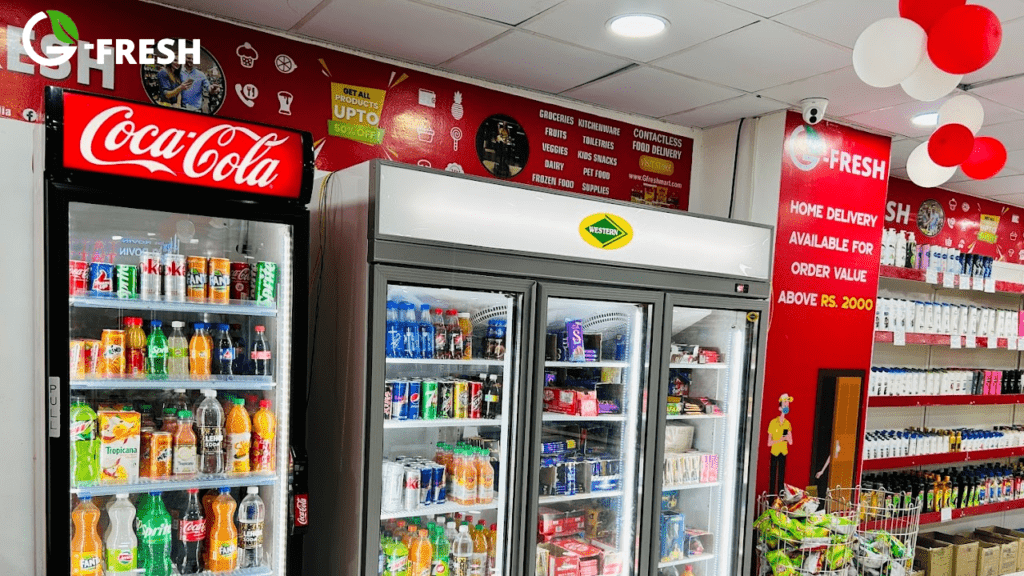Quick Step Guide to Create Supermarket Business plan
Supermarket openings can be very profitable ventures, but they need to be well planned and carried out. To aid in the process and improve your chances of success, a well-written business plan is crucial. This post will walk you through a rapid, step-by-step process for writing a thorough business plan for a supermarket. A supermarket business plan is a comprehensive road map that describes your objectives, approaches, and plans of action for launching and running a profitable grocery shop. It acts as a road map for your project, assisting you in maintaining organization and focus as you go.
Supermarket business plan
Executive Summary
Your complete supermarket business plan for franchise in India is condensed into an engaging one-page overview in the executive summary. It’s imperative to grab readers’ attention right away by clearly stating the supermarket concept. Emphasise the features that set your grocery store apart, such as its unmatched selection, concentration on locally produced goods, or its cutting-edge online ordering technology. Clearly state the target market’s demographics and geography.
Provide examples of how your value proposition exceeds competitors in meeting customer needs. Exude confidence in the expansion potential of your supermarket, supported by market research. An interesting executive summary piques readers’ interest and encourages them to dive in deep to discover all the information in your extensive business plan.
Company Overview
In the company overview for supermarket franchise in India, give a thorough introduction of your grocery business. Indicate which form it will take: corporation, partnership, single proprietorship, etc., and include a list of the owners. If the organisation is well-known, give a brief overview of its past. Create a concise mission statement that sums up the goals and principles of your grocery store.
Clearly state your main beliefs, such as your dedication to sustainability as well as excellent customer service. Emphasise unique features that set your supermarket apart, such as an unparalleled assortment of products, a creative shop design and layout, or cutting-edge technology integration. A thorough picture of your company is painted for readers by outlining its basis, guiding principles, and competitive advantages before getting into operational details.

Market Analysis
A thorough market research for mini supermarket franchise or how to start franchise business in India offers crucial information to help guide your supermarket toward success. First, create a thorough profile of your target market, including their regions, ages, incomes, and lifestyles. It’s important to comprehend their preferences along with shopping routines for groceries.
After that, carry out a thorough analysis of the supermarket sector, taking note of development trends, new developments such as online grocery delivery, possible roadblocks, and profitable prospects. Lastly, carefully examine your competitors, both direct and indirect, in the grocery store industry, such as specialty stores. Take note of their advantages, weaknesses, and differentiators. You may create strategies to efficiently reach your target audience, take advantage of trends, get around obstacles, and obtain a competitive edge with a 360-degree picture of the industry.
Products and Services
Give a thorough rundown of all the groceries and extra services your supermarket will offer. Search for the top 50 franchise in India and see how they work. Describe the main food categories, such as fresh produce and fruits, prime meats from the butcher, dairy cases including milk, cheese, and yoghurt, and a bakery with breads and pastries. But go beyond the fundamentals and include speciality sections like an olive bar, flower shop, or freshly squeezed juice station.
Describe value-added services in detail, such as meal preparation with take-home entrées and a full-service deli, pharmacy, and bank branch. Above all, highlight any unique features that really set your supermarket apart, such as an unmatched international foods department, organic/health-focused selections, or in-store baked goods produced from scratch. Making your offerings stand out from the competition solidifies your competitive advantage.
Marketing and Sales Strategy
For attracting customers to your store and building on a client base that will continue to operate in your wake, it is essential to develop a healthy marketing and selling plan. First, create your USP, or unique sales proposition, which is a persuasive statement that presents the benefits of a customer choosing you over competitors like fresher produce, better customer service and unparalleled convenience. After this, elucidate your pricing policy while keeping affordability and profit in mind.
For marketing strategies, use methods such as social media campaigns with a focus on newly launched products. Incorporate specials into the regular cycle of major advertising efforts like shopping lists and catalogues. It would be worthwhile to give something in return for repeat business.
Plan
The operations plan explains the day-to-day running of your supermarket. This includes store design and layout, supermarket franchise cost, inventory control system, personnel requirements as well. But it also involves managing the supply chain management and coping with various types perishables. What are the strategies you adopt to manage perishables and protect food safety? How does this help provide first-rate customer service?
Must Read: Complete Guide to Launch Grocery Franchise in India
Management and Organization
You will present your management group as well as your supermarket’s organisational chart in this part. Emphasise your important employees’ relevant expertise and credentials, and outline their roles as well as responsibilities inside the company. If you intend to bring on more employees, describe your hiring in addition to training plans.
Financial Plan
One of the most important parts of your supermarket business plan is the financial strategy, which shows that your retail endeavour is financially viable. Begin by listing all of your first expenditures, which should include costs for equipment, merchandise, a property to buy or lease, and any licences or permissions that are required. Subsequently, present comprehensive financial forecasts encompassing income statements, as well as cash flow statements, along with balance sheets for the initial three to five years. Make sure your projections have assumptions and justifications.
Funding Requirements
Provide a detailed description of your financing needs in this section if you’re looking for outside support. Indicate how much funding you require, what you intend to use it for (e.g., expansion, working capital, or startup expenditures), and, if applicable, a proposed repayment timeline. Moreover, list any assets or current investments you have made in the company.
Exit Strategy
Even though it might seem early, it’s critical to have an exit strategy right away. Describe your intentions for the eventual sale or transfer of your grocery store business, including if you want to sell it to a third party, pass it down to family members, or go public with an IPO.
Conclusion
A thorough supermarket business plan takes time, work, as well as meticulous attention to detail. But the benefits of a well-thought-out plan can be substantial, offering a clear road map for achievement and raising your chances of getting money along with accomplishing your objectives. It is important to keep your business plan up to current and reviewed as your supermarket expands as well as changes. You can stay on course, adjust to shifting market conditions, and make well-informed decisions for your company’s future by routinely reviewing your strategy.
Also Read: What Should be Consider Before Buying a Supermarket Franchise ?

